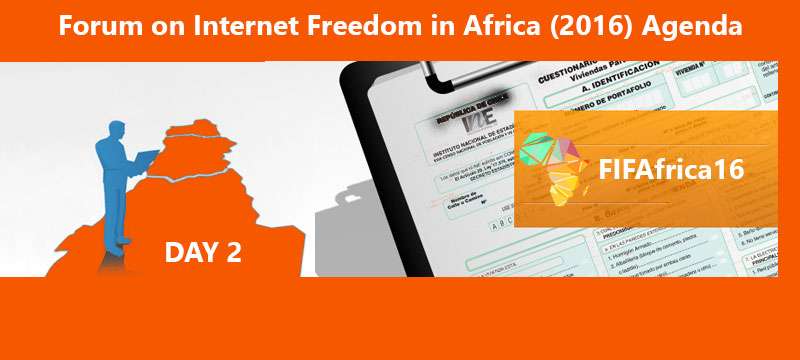 Anriette Esterhuysen is the executive director of the Association for Progressive Communications (APC), an international network of organizations working with Information and Communications Technologies (ICT) to support social justice and development. Anriette has served on various global committees and working groups including the African Technical Advisory Committee of the UN’s Economic Commission for Africa’s African Information Society Initiative and the United Nations ICT Task Force, the World Summit on the Information Society (WSIS) Task Working Group on Financing Mechanisms, and the Commission for Science and Technology for Development Working Group on Internet Governance Forum (IGF) Improvements.
Anriette Esterhuysen is the executive director of the Association for Progressive Communications (APC), an international network of organizations working with Information and Communications Technologies (ICT) to support social justice and development. Anriette has served on various global committees and working groups including the African Technical Advisory Committee of the UN’s Economic Commission for Africa’s African Information Society Initiative and the United Nations ICT Task Force, the World Summit on the Information Society (WSIS) Task Working Group on Financing Mechanisms, and the Commission for Science and Technology for Development Working Group on Internet Governance Forum (IGF) Improvements.
Anriette was one of five finalists (only female and only civil society finalist) for IT Personality of the Year in South Africa in 2012, an award which recognises a person who has made an outstanding impact on the South African ICT industry.
Currently Anriette is a member of the Global Commission on Internet Governance and the Council of the NETmundial Initiative. Esterhuysen has published extensively on ICTs for development and social justice.
Ife Osaga Ondondo – Head of Legal, Sub-Saharan Africa, Google
 As the Head of Legal, Sub-Saharan Africa at Google, Ife oversees the entire spectrum of Google’s legal work in Sub Saharan Africa. Her work includes advising the regional business, product and engineering teams on relevant legal issues, negotiating and drafting a variety of commercial agreements, dispute resolution and representing Google before legal and regulatory stakeholders.
As the Head of Legal, Sub-Saharan Africa at Google, Ife oversees the entire spectrum of Google’s legal work in Sub Saharan Africa. Her work includes advising the regional business, product and engineering teams on relevant legal issues, negotiating and drafting a variety of commercial agreements, dispute resolution and representing Google before legal and regulatory stakeholders.
Prior to Google she was General Counsel at Innovations for Poverty Action, a US think tank where she was in charge of the organization’s legal and compliance issues in the US, Asia, Latin America and Africa. Ife has an extensive background in various aspects of law having worked at the International Finance Corporation (World Bank Group), UNHCR, Oxfam America, and the law firm of Mohamed and Muigai in Nairobi, Kenya. Ife has a passion for teaching and has taught at Tufts University, Boston University School of Public Health and Rutgers University in the US.
Ebele Okobi – Head of Public Policy, Facebook
 Ebele Okobi is the Head of Public Policy, Africa at Facebook, where she leads on engaging with government, civil society and other policy influencers and shaping Facebook’s policy agenda across sub-Saharan Africa. Prior to Facebook, Ebele was the founding Global Head and Senior Legal Director for Human Rights at Yahoo, where she led Yahoo’s efforts to address the legal and policy issues related to privacy, free expression and access.
Ebele Okobi is the Head of Public Policy, Africa at Facebook, where she leads on engaging with government, civil society and other policy influencers and shaping Facebook’s policy agenda across sub-Saharan Africa. Prior to Facebook, Ebele was the founding Global Head and Senior Legal Director for Human Rights at Yahoo, where she led Yahoo’s efforts to address the legal and policy issues related to privacy, free expression and access.
Ebele was a founding member of the Global Network Initiative Board from 2008 to 2014, is a life member of the Council on Foreign Relations, and a member of the Alliance for An Affordable Internet’s Advisory Board. She earned a BA in Psychology from the University of Southern California, a JD from Columbia Law School and an MBA Certificat des Études from HEC-Paris. She is married and has four children.
Strengthening Africa’s Conversation and Actions on Internet Freedom
By Juliet Nanfuka |
The Collaboration on International ICT Policy for East and Southern Africa (CIPESA) with the support of Facebook, the Ford Foundation, Google, Hivos, Open Technology Fund (OTF) and Small Media will assemble an audience in Kampala, Uganda for the Forum on Internet Freedom in Africa 2016. Set to take place on September 27–29, the Forum has become a crucial convening for actors on online freedom of expression and association, and the free flow of information in Africa.
Panel discussions at this year’s Forum will explore the growing trend of internet shutdowns, the increasing presence of violence against women online, the intersection of open data and human rights, African frameworks that protect online rights and their conflicts with outdated laws, amongst others.
“Recent events across various African countries make the Forum as indispensable as it ever has been in discussing challenges to online rights and the opportunities for collaborative efforts by state and non-state actors to meaningfully protect and advance internet freedom on the continent,” says CIPESA Executive Director Dr. Wairagala Wakabi. “We are glad to be facilitating growing awareness of online rights in Africa and are keen to continue contributing towards building this awareness amongst different stakeholders.”
Indeed, one of the pre events at the Forum will be the training of journalists and human rights defenders on human rights and internet policy. The training will be hosted by CIPESA, together with Paradigm Initiative Nigeria (PIN) and the United Nations Office of the High Commissioner for Human Rights (OHCHR) in Uganda.
The Forum, set to coincide with the International Day for Universal Access to information (September 28), will also serve as an opportunity to delve into the current trends on access to information on the continent. In partnership with the Africa Freedom of Information Center (AFIC) and Office of the Prime Minister (Uganda), a public dialogue on access to information as a driver to achieving the 2030 Development Agenda and the Sustainable Development Goals (SDGs) will also be held.
A key highlight of the Forum since its inception is the launch of the annual State of Internet Freedom in Africa regional reports. Previous editions of this report have focused on seven African countries – Burundi, Ethiopia, Kenya, Rwanda, Tanzania and Uganda – with a stand-alone report produced on South Africa. This year’s report has been expanded to include 10 countries. The countries featured in the 2016 State of Internet Freedom in Africa report are Burundi, Democratic Republic of Congo, Ethiopia, Kenya, Rwanda, Somalia, South Sudan, Tanzania, Uganda, Zambia and Zimbabwe.
Dr. Wakabi adds, “Access to information and the state of internet freedom are closely interlinked. Countries with higher levels of information access tend to have more online liberties than those without, and they also generally have a healthier democratic culture. The power of public information, open data and a free and open internet should not be undermined if we are to achieve effective civic participation, respect for human rights, transparent, accountable and democratic governance, and realisation of the 2030 Development Agenda.”
The Forum serves as an opportunity to gather insights from the different stakeholders in the information society ecosystem towards promoting a free and safe internet, hence the key themes that emerge from the Forum are widely disseminated. The 2015 outcomes and recommendations were shared in spaces such as the Internet Governance Forum (Brazil), the Africa IGF (Cameroon) and the Stockholm Internet Forum, and in various national convenings.
The Forum has confirmed participants from at least 23 countries and speakers from over 46 organisations including the Berkman Klein Center for Internet & Society at Harvard Law School, Panos Institute Southern Africa, BudgIT (Nigeria), Article 19 (Kenya), Digital Society of Zimbabwe, the Web Foundation, Association for Progressive Communications (APC), iAfrikan, Namibia Broadcasting Corporation (NBC), Access Now, Kenya ICT Action Network (KICTANET), National Information Technology Agency (NITA) Ghana, and Research ICT Africa. Others include Hivos, Nation Media Group, Africa Media Institute, Media Institute of Southern Africa Zimbabwe Chapter, Freedom of Expression Institute (FXI), Privacy International (PI) , Uganda Police, Zambia Police Service, University of Malawi, Communications Regulators Association of Southern Africa (CRASA) and the Ministry of Information, Communications and National Guidance (Uganda).
Follow the conversation at #FIFAfrica16.
#FIFAfrica16: Agenda – Day 2
#FIFAfrica16 | See what we have lined up for the Forum on Internet Freedom in Africa 2016. On 29 September, there will be a series sessions and the launch of the State of Internet Freedom in Africa 2016 report.


